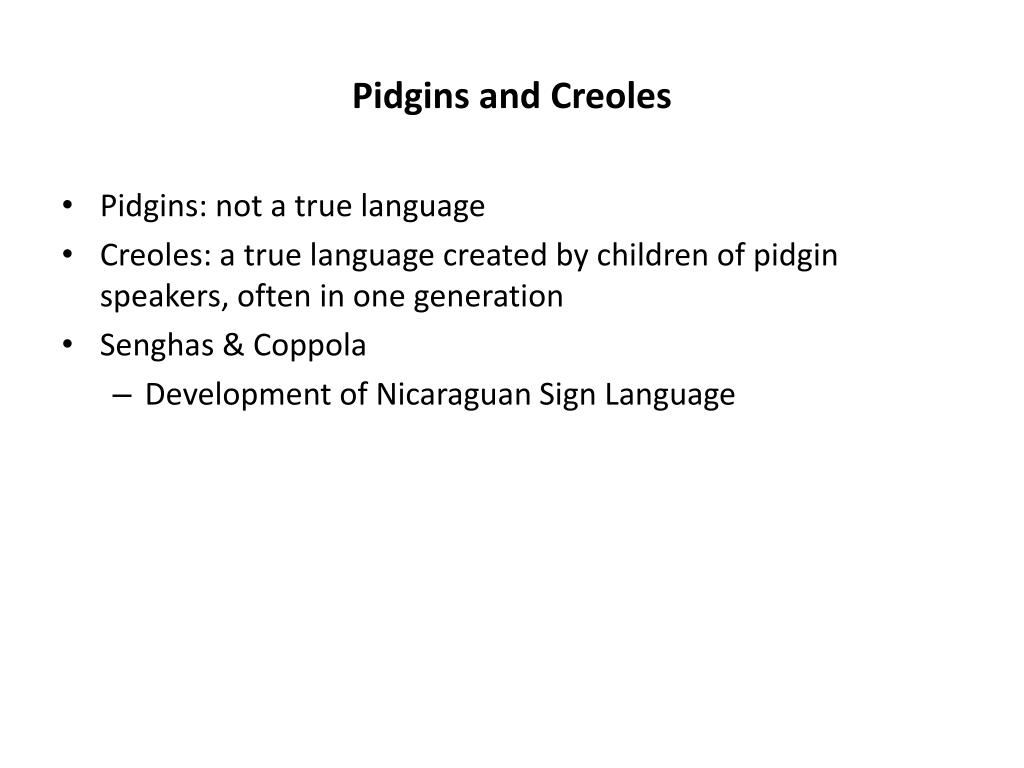
The explorers had a great need for translators – and since most of the people they met were uneducated, they took some of the locals to Portugal for an education.

It is no surprise that there was a Portuguese pidgin which was spoken as far back as the 16th and 17th centuries. Since the Pidgin language is closely related to the English language, it is very evident that its origins stem from the periods that European explorers and merchants docked their ships on the Coast of West Africa.Īctually, Portuguese explorers were the first to arrive on the shores of Ghana. It can be found and heard in many different media, such as popular songs, political platforms and even in radio stations, and widely used also in markets, airports, schools and the workplace.

With 5 million speakers, contemporary pidgin is spoken by 20% of the population. Specifically, pidgin still carries stigma in academia which may explain why “few structural or sociolinguistic descriptions of the variety have been published”. Today, this form of Pidgin can be heard in a variety of informal contexts, although it still carries a certain stigma usually by the older folk. Although other languages of Ghana are available to them, students, particularly males, use pidgin as a means of expressing solidarity, camaraderie and youthful exuberance.

There have been some cases where certain educators have unsuccessfully attempted to ban the use of pidgin. It is mostly spoken by the youth and chic older people and they tend to use it in friendly offline and online discussions. Unlike the traditional slang words used in Ghana, it is a combination of the English language and some words from common local languages. You will find the Ghanaian pidgin language very widely spoken among high school males


 0 kommentar(er)
0 kommentar(er)
